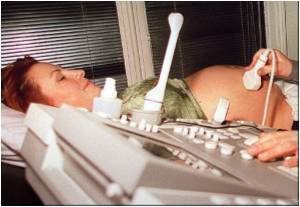A new research found how 2 hormones that reduced pain and need for analgesics when released during childbirth could work similarly when administered simultaneously to those with intractable pain

Study author Forest Tennant, MD, said side effects were remarkably few, probably because the hormones are natural, bio-identical compounds. Dr. Tennant is an internist and addictionologist who specializes in research and treatment of intractable pain at the Veract Intractable Pain Clinics he founded in West Covina, Calif.
"The benefit that these patients mostly talk about is somewhat subjective but relates to what patients routinely call a feeling of well-being,' more alive,' or [increasing] will to live," Dr. Tennant said. "They also believe the combination is one they want to continue."
Sometimes referred to as the "bonding hormone," OT exerts powerful action in the neuroanatomy of intimacy and also acts as a neurotransmitter in the brain. HCG supports the development of the fetus during pregnancy among other roles.
Both hormones surge during and after childbirth, and pregnant women have frequently exhibited reduced pain and need for opioids. Dr. Tennant has conducted previous small open-label studies that confirmed a similar effect for both hormones when administered separately in patients who suffer from intractable pain. However, no one had tested the effect of administering both hormones simultaneously until now.
The study, which was cleared by the facility's Institutional Review Board, included 9 patients with intractable pain who were being maintained on 1 or more long- and short-acting opioids. Daily dosages were administered beneath the tongue of HCG ranging from 250 to 500 units and OT in 10 units taken 2 to 4 times. Patients were evaluated for pain relief, side effects, energy, mental function and opioid dose reduction at 2 to 3 months.
Advertisement
All other patients reported a 30% to 40% reduction in opioid use, reduction in baseline pain, flare intensity, or increase in time between flares. Reports of energy, improved mental functions, mood and libido were variable.
Advertisement
Source-Newswise












